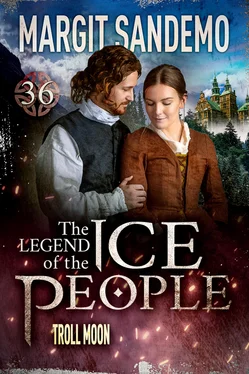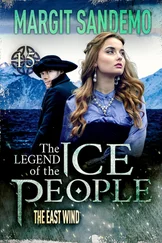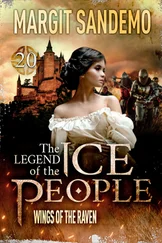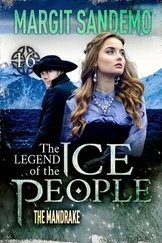Am I pretty? she thought self-critically. Well, her face seemed to be all right as far as she could tell. She had big dark eyes and her features were delicate but had character. At least she thought so.
Now, now, don’t get too pleased with yourself, your father wouldn’t approve.
She was so insecure about her appearance. She had a nice body, even though her legs were a bit more robust than she would have liked. Not that much, but they weren’t quite as shapely as many other girls’. It was too bad that short skirts had become fashionable: the previous generation had had an easier time of it, because they had been able to conceal their legs under their long dresses.
But the ones who had elegant legs to show off were probably very satisfied.
She frowned at her own reflection in the mirror and picked up the milk pail.
“I’m leaving now,” she shouted and rushed out before her father could make any more requests. She knew that he was feeling all right, so she could leave the house with a clear conscience. It was perhaps a bit early, but she longed to get out, wanted to enjoy the unique light of the moon, the hopeless romantic that she was.
They lived to the northeast of Oslo, which was now the capital of Norway, in a house in a rural setting. It was good for Frank’s weak lungs. They acquired all their agricultural produce from a nearby farm, as that was the cheapest solution. For Christa, the daily walk to the dairy was the most exciting event in her otherwise monotonous day. That was when she got the chance to meet ordinary people. Sinners, Frank would call them, but she couldn’t see the difference between them and the brothers and sisters of the congregation. The people in the barn seemed freer and happier, but it was her impression that that wasn’t considered a good thing.
The Ice People were also free. That was why she wanted so badly to visit them.
She and Frank lived on the good investments they had made with Vanja’s fortune. Christa wanted to get a job, but Frank wouldn’t hear of it. Who would look after him, if she did that? And think of all those demonic temptations! Anyway, she should be happy to stay at home with him; he probably wasn’t going to live very much longer anyway.
Whenever he talked that way it would make Christa very sad. Though he had always done it, ever since she was very little, and of course, he really was sick, so she lived with her heart in her mouth. If only he would stop reminding her that he wasn’t going to live forever – it hurt so much to hear it!
She didn’t understand that it was the best way Frank knew of exerting pressure on her. Her cautious, gentle suggestions that perhaps he would feel stronger if he got out and moved around a bit more were always immediately rejected.
Nor could she understand why she always felt so dejected when she was in his presence. She assumed it was due to his illness and her concern for his health.
She felt simply useless. And a constant sense of guilt hovered over her.
Visits to Linden Avenue and the Volden family were like the elixir of life to her. Without realizing it, she felt a lot more at home there than with her own father. The Ice People understood her and, even though they never went against Frank’s wishes, they seemed to disagree with him on most issues relating to her upbringing. Filled with a sense of guilt, Christa listened to them with rapt attention. She was also allowed to let her hair down there and wear it down her back – when her father wasn’t looking, of course – and Malin and Hanne allowed her to try on their fashionable clothes and cosmetics. She could chat about the farmer’s son, who was nothing special, but who was the only young man she saw aside from the ones in the Free Church, and she didn’t like them at all.
She did like Abel Gard, one of the most important men in the congregation, but since Frank was always saying that she ought to marry Abel, who was a widower with a lot of children, she avoided him, even though he was good-looking and always nice to her.
It was hard being so obedient all the time. And constantly having to be a good person.
She swung the empty aluminium pail back and forth as she walked across the crunching snow. The moon emerged between the trees every so often, and Christa couldn’t shake off the feeling that she was connected to it, as though they were both a part of an entirety, of a cosmos. The moon was her friend: it was trying to tell her something. And she didn’t know how to interpret its message.
Was it a frightened, terrified moon hiding its face in fear?
That sounded a bit ridiculous!
Winter was coming to an end, and Christa felt that spring was already in her blood. She felt capable of anything. Whether it was spring fever or the magic of the moon that made her feel that way, she wasn’t sure.
All at once she knew she was in a dilemma. No matter what she chose to do she would end up hurting someone. She felt that it would not only be annoying but also hurtful to her sweet old grandfather if she didn’t attend his birthday. She knew that he cared deeply for her, Vanja’s daughter. But her father wouldn’t allow her to go.
So whom would she be forced to hurt?
As she passed the road that led to the centre of the parish she caught sight of a young man leaning against the stand where the farmers left their milk churns. Or rather, he was sitting on it and had crossed his long legs at the ankles.
She didn’t know him. The moon shone on his blond hair, which looked practically white. He was very poorly dressed, in tattered garments he must have inherited from his father. They were much too thin for this late-winter evening.
As she walked past him she gave him a quick, shy glance, and she couldn’t help smiling a little.
He smiled back, looking friendly, gentle and wistful, and for a moment she thought that she recognized him. But that feeling soon disappeared. One thing she had noticed, however, was that his hair really was white. He had a lock of white hair at his left temple. It looked strange on such a young man. He couldn’t have been more than twenty and was probably even younger.
Christa felt like turning around and looking at him one more time, for she felt that he was following her with his gaze, but she didn’t dare. Instead she swung the pail with such nonchalance that it bumped against her wrist. She calmed down a little and continued walking at a normal pace.
The snow crunched cheerfully under her feet. This had to be winter’s last desperate effort to hold on: tomorrow the sun would hit it and there would be black spots everywhere.
She was longing for spring now. The winter had been long.
The barn ... It was so good to enter the noisy milking parlour and to listen to the cows and hear people shouting to one another. Clogs clattering on the floor. One of the women came out to empty her foaming milk pail into the big tank. She was singing in a shrill and sentimental voice one of the latest broadsheet ballads.
The ballad of Lindelo ... that was a song the romantic Christa could appreciate. She knew that it was nothing but a blatant tearjerker, but Lindelo’s bitter fate made an impression on her.
“A ballad I sing for thee,” shrieked the milkmaid.
So let us shed a tear
For the boy who laboured for Peder
Through his sorrowful childhood years.
She turned to Christa. “Oh, are you here already, young Miss? It’s early, and the foreman isn’t ready to measure the milk yet.”
“That’s all right, I’ll just wait,” said Christa, smiling, and she sat down on a bench.
The girl went on singing. It was as though she really was shedding a tear for Lindelo’s sorrowful life.
Only toil and slaving and scolding
All through poor Lindelo’s days.
Читать дальше












